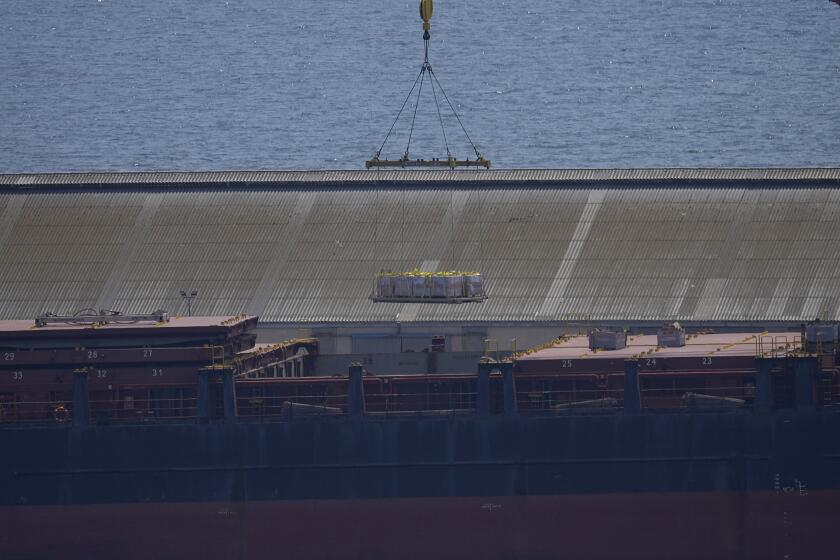Draft Constitution Finished, Lawmakers Announce
Iraqi lawmakers Wednesday announced that they had completed final adjustments to the country’s draft constitution. But United Nations officials, responsible for printing the document for voters, said they would wait until the most recent changes were formally presented to the transitional National Assembly.
“We do not want to be exposed to any risk that the text given to us is under any dispute,” said Nicholas Haysom, head of the U.N.’s constitutional team in Baghdad.
Once the changes have been read to the assembly, which is expected to take up the matter early next week, the U.N. will print 5 million copies for distribution across the country.
The printing should finalize the form of the constitution that will be put before about 14 million voters in a national referendum set for Oct. 15, and end the often-bitter negotiations over the document. Talks among Shiite and Sunni Arabs and ethnic Kurds on the drafting panel have dragged on for months through numerous declarations of completion.
Even after Shiite and Kurdish representatives froze out the Sunnis and declared their draft of the charter complete late last month, talks and modifications continued. That process has eaten into the time allotted for public education and debate before the referendum.
“Undoubtedly every time we are late ... the enthusiasm of the people will be decreased, and at some point it will threaten the whole political process,” said Abbas Bayati, a Shiite member of the assembly.
With a month left before the referendum, there has been little in the way of an effort to inform the Iraqi public on the specifics of the constitution. Haysom predicted that the printing would take about 10 days, and said the copies would be distributed by the U.N., Iraqi government and civil society groups.
That would leave about two weeks for dissemination and debate -- a campaign that, according to the timetable in the interim constitution, was supposed to last two months.
“We’re running out of time,” said Kurdish parliamentarian Abdul-Khaleq Zangana.
The final modifications involve the controversial issue of national identity and the vital question of water rights.
Neighboring governments and the Arab League reacted angrily to language in the earlier draft that identified only Iraq’s Arab communities, not the Kurds and other ethnic minorities, as part of the Arab world. Now, in an attempt to soften tense relations with regional governments, the clause mentions that Iraq was a “founding part of the Arab League.”
A second change specifies that water resources will be allocated by the central government. The previous draft split that authority between central and regional governments. Shiite politicians pushed for the change, fearing that with the Kurds dominant in the river-rich north, the parched Arab south could lose out.
Tellingly, none of the changes touched on the main issues raised by Sunni representatives, who remain strongly opposed to the Kurdish-Shiite desire to establish a federal system with strong regional authority and a weak central government.
That the language on federalism remained unchanged suggested that Shiite and Kurdish lawmakers had essentially given up on trying to win support among Sunni colleagues, who for the most part opposed the constitution that was presented last month.
*
Times staff writers Borzou Daragahi and Saif Rasheed contributed to this report.
More to Read
Start your day right
Sign up for Essential California for news, features and recommendations from the L.A. Times and beyond in your inbox six days a week.
You may occasionally receive promotional content from the Los Angeles Times.






